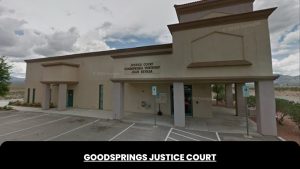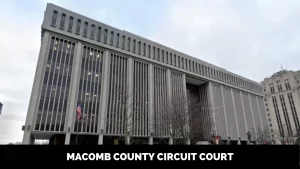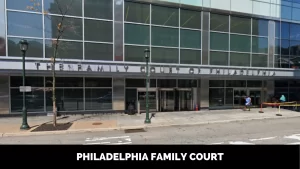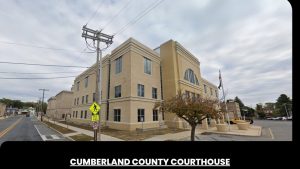Oklahoma District Court Records
The district courts in Oklahoma handle important cases that shape communities and residents’ lives. Understanding district court cases and how to access records provides transparency around legal disputes and precedents. Major types of district court case records include those related to civil lawsuits, criminal charges, family issues like divorce or child custody, and probate proceedings after a death. Counties with in Oklahoma are
| County Name | State |
|---|---|
| Craig | Oklahoma |
| Creek | Oklahoma |
| Delaware | Oklahoma |
| Mayes | Oklahoma |
| Nowata | Oklahoma |
| Osage | Oklahoma |
| Ottawa | Oklahoma |
| Pawnee | Oklahoma |
| Rogers | Oklahoma |
| Tulsa | Oklahoma |
| Washington | Oklahoma |
Access Oklahoma Northern District Court
CM/ECF Help Desk: 866-213-1957
| Court’s Name | U.S. District Court For the Northern District of Oklahoma |
|---|---|
| Court’s Address | 333 W. 4th St., Rm. 411, Tulsa, OK 74103 |
| Court’s Phone Number | CM/ECF Help Desk: (918)699-4844 or toll free (866)213-1957; General Court Information: (918)699-4700 |
| Court’s Email Address | [email protected] |
| Court’s Hours | 8:30AM – 4:30PM, Monday – Friday |
Types of Cases in District Courts
District court records provide details on the variety of legal disputes handled in Oklahoma’s court system. The four main categories are:
Civil Cases
Civil suits involve conflicts between individuals, organizations, or government agencies over issues like breach of contract, injury liability, or property rights.
Criminal Cases
District courts handle cases where defendants face felony charges like assault, murder, or robbery as well as some misdemeanor offenses.
Family Cases
Disagreements over divorce, alimony, child custody and support end up as family court disputes.
Probate Cases
The courts oversee distribution of estates through wills and conservator guardianship appointments after a death.
Accessing District Court Records
Court records offer transparency into the legal system. The public can access files through courthouses or online records systems.
Public Access at Courthouses
Courthouses keep civil, criminal, and family case files available for public review, though older files may be archived offsite. Photo ID is needed to access records.
Online Record Searches
Many county court systems have searchable online dockets listing parties, lawyers, future hearing dates, charges filed, and case outcomes.
Requesting Copies of Records
Individuals involved in a case can request full copies of files. Third parties need to file public record requests for private data exclusions. Fees may apply.
Civil District Court Records
Civil suits have extensive documentation from initial complaints through final resolutions.
Civil Case Files Contents
Initial Pleadings
Cases typically start with complaints or petitions outlining plaintiffs’ allegations against defendants. Responses and answers rebut claims.
Motions and Hearing Briefs
As cases progress, motions, legal briefs, and exhibits provide arguments aiming to resolve issues or compel certain court actions.
Exhibits and Evidence
Document, video, photo, or physical evidence gets submitted to back parties’ version of events. Witness affidavits also supplement cases.
Final Judgment or Dismissal Orders
At close, judgment orders from benches or jury trials grant verdicts. Cases ending unresolved have dismissal notices.
Checking a Case Status Online
Many county systems now feature online case management systems allowing litigants to check statuses instead of contacting clerks.
Criminal District Court Records
Criminal charges lead to extensive files tracking cases from arrest through sentencing.
Felony Criminal Case Files
Arrest Records and Charges
Initial reports explain factual circumstances supporting charges recommended by police and prosecutors against defendants.
Evidence and Motions
As with civil cases, legal motions and evidence aim to prove or disprove guilt. Common items include photos, videos, investigation reports, fingerprints, weapons, and witness statements.
Sentencing Orders
Upon conviction by trial or guilty pleas, judges issue prison term, probation, fine, and restitution orders for sentences.
Misdemeanor Criminal Case Files
While less severe, misdemeanors still generate court documents.
Citations and Complaints
Traffic tickets, disorderly conduct notices, and assault citations provide first charging paperwork.
Docket Entries from Hearings
Court clerk notes summarize proceedings, pleas, and continuance delays. Click to see them here
Final Sentencing Orders
Punishments can include short jail stints, community service duties, counseling requirements, or fines.
Family Court Records
Matters like divorce and child custody produce many sensitive documents.
Divorce and Child Custody Disputes
Petitions for Dissolution of Marriage
Initiating divorce requests outline requests for asset division and child custody. Responses dispute terms.
Parenting Plans
These propose schedules and rules for post-divorce childcare responsibilities and decisions.
Final Divorce Decrees
Judges formalize details around alimony, property division, and custody based on hearings and marital history.
Child Support and Alimony Cases
Beyond divorce, standalone disputes over financial family obligations related to raising children or spousal maintenance often end up in court with their own case files.
Probate Court Records
The deceased’s estates move through courts for resolution.
Wills and Estates
Wills dictate asset distributions after death, while courts must validate terms and authorize transfers.
Conservatorships
If no will exists, courts decide guardians for surviving minors and administer financial matters. Similarly, conservatorships provide guardians for adults unable to manage affairs.
Flag Definitions
Here are the key points about the various flag definitions:
- 3J/PNL – A three judge panel has been assigned to the case
- ADMINCLOSE – The case has been administratively closed
- APPEAL – An appeal to the Circuit Court is pending
- ASSET – Asset proceedings related to the case
- BARRED – A party has been barred from filing
- BIFURCATE – The case has been bifurcated or split into separate parts
- CASE_SEAL_REVIEWED – The sealing of the case has been reviewed
- CASREF – The case has been fully referred to a magistrate judge
- CERTQUESTION – A certified question is pending in state court
- CLASS – The case is certified as a class action
- CLOSED – The case is closed
- CONMAG – The case has consented to proceed before a magistrate judge
- CONSDS – The case is consolidated for discovery
- CONSPT – The case is consolidated for pretrial matters
- CONSTR – The case is consolidated for trial
- CPYRGT – Copyright infringement case
- DEATH – Habeas death penalty case
- DISCREF – Discovery referred to magistrate judge
- EXECUTION – Writ of execution proceedings
- GARN – Garnishment proceedings
- INTAPP – Interlocutory appeal pending
- INTERPRETER – Interpreter needed for defendant
- LAND – Land condemnation case
- LEADDS – Lead case for discovery consolidation
- LEADPT – Lead case for pretrial consolidation
- LEADTR – Lead case for trial consolidation
- LV/CT – Party needs leave of court to file
- M/2255 – 2255 motion pending
- MDL – Part of multi-district litigation
- MERGED – Case merged into a criminal case
- MINOR – Case involves a minor
- MOTREF – Motions referred to magistrate judge
- MULTIPLE_CVB_VIOLATIONS – Multiple Central Violations Bureau violations
- NOMAG – No magistrate judge assigned
- PATENT – Patent infringement case
- PROTO – Protective order entered
- R/R – Report and recommendation pending
- REMAND – Case remanded
- REOPEN – Case reopened
- RICO – RICO case
- SALE – Sale proceedings
- SEALED – Case sealed
- SETCON – Settlement conference set
- SEVER – Defendant severed in criminal case
- STAY/D – Discovery stayed
- STAYED – Case stayed
- STRK1/2/3 – Strike one, two, three against filing party
- TRADEMARK – Trademark infringement case
- TRAN10 – Transferred re: habeas or 2255 petition
- TRANSF – Transferred to another district
- U/ADVISE – Taken under advisement
- VJASSIGN – Visiting judge assigned currently or previously
- VJREFSPEC – Specific matters referred currently or previously to visiting judge
The flags provide important status information about cases to help understand where they stand procedurally and what issues are involved. Knowing the meaning of the various flags aids in interpreting court dockets and case files correctly.
Conclusion
In summary, Oklahoma’s district court records offer extensive documentation around the wide variety of legal conflicts that shape communities and residents’ lives. Understanding the various cases and records available provides helpful insight into the civil, criminal, family, and probate matters these important courts oversee.
Frequently Asked Questions
Are all court records available online?
Many counties now offer online case management systems, but some files still need accessed manually at courthouses.
What private information gets redacted from files? Things like social security numbers, medical data, and minor’s names get excluded from public copies.
Who decides what evidence gets submitted in trials? The judge determines admissibility based on relevance to the charges and procedural propriety.
Can family court trials be closed to the public? Judges can seal family proceedings, especially those involving minors, but final orders remain public record.
How long do district courts keep records? They preserve case files according to state retention schedules, often 75+ years. Archived records get transferred to Oklahoma State Archives.







